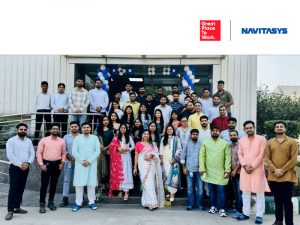
In an era marked by unprecedented global challenges, the call for extraordinary and courageous leadership echoes louder than ever before. As revealed by Edelman’s 2023 Trust Barometer, economies worldwide find themselves in a precarious situation, grappling with the far-reaching effects of global conflicts that threaten markets. In this volatile landscape, business leaders are compelled to redefine their skill sets to not only weather the storm but also thrive. This transformation demands a closer look at the role of emotional intelligence in shaping effective and competitive business leadership.
Defining the New Skill Set:

The tides of change necessitate a fresh set of leadership tenets, with compassion taking center stage. In a world fraught with uncertainties, leaders must embody empathy for the challenges their teams face. Compassion becomes the catalyst for cultivating a supportive workplace culture that fosters resilience and unity. Learning emerges as the second pillar of this new skill set. As markets evolve and disruptions become the norm, leaders must adopt a continuous learning mindset. Embracing change and nurturing a culture of curiosity and adaptability are essential for staying ahead in this dynamic environment.
Humility, often overlooked but of immense significance, constitutes the third element. In an era of complexity, acknowledging one’s limitations and valuing diverse perspectives become critical. Humble leaders inspire trust and openness, creating an environment conducive to innovation.

Our India’s Most Trusted Leaders 2023 report sheds light on the persistent gender gap, with just one female leader for every 17 male leaders. This underscores the urgency for cultivating responsible, effective, and trustworthy leadership to bridge this glaring disparity.
The Impact of Remote Work:
The seismic shift toward remote work has redefined the dynamics of leadership. The absence of regular in-person interactions has fueled concerns about performance and productivity. Some leaders, succumbing to productivity paranoia, resort to invasive monitoring methods. The insistence on a return to the traditional office setup reflects a struggle to adapt to evolving work norms. Navigating this terrain requires leaders to embrace emotional intelligence as a tool for understanding and addressing the unique challenges presented by remote work.
Cascading Leadership Values:

Gone are the days of top-down leadership; the modern workplace demands a more egalitarian approach. Every employee, irrespective of their hierarchical position, is a potential leader. This shift emphasizes the need to foster a culture where leadership skills are not confined to a select few but permeate every level of the organization. Even individual contributors, without direct reports, play pivotal roles as project leaders or collaborators, leveraging their leadership skills to drive initiatives across departments.
Emotional Intelligence as the Game-Changer:
At the heart of this paradigm shift is emotional intelligence (EI). EI encompasses self-awareness, self-regulation, empathy, and social skills. Leaders who harness the power of EI create workplaces that are not only resilient but also innovative. Honesty and trust are fostered by leaders who are self-aware enough to recognize their own advantages and disadvantages. Self-regulation allows them to navigate challenges with composure, setting the tone for the entire organization.
Empathy, a cornerstone of emotional intelligence, is crucial in understanding the diverse needs and challenges of a remote workforce. Leaders who empathize create a sense of belonging, driving engagement and loyalty. Social skills, the final component of EI, enable leaders to communicate effectively, resolve conflicts, and build strong, collaborative teams.
The current global landscape demands leaders who can navigate uncertainties with grace and resilience. The new skill set for leadership, grounded in compassion, learning, and humility, is essential for success. Organizations must prioritize cultivating leaders who embody these qualities to bridge gender gaps and foster trust. The impact of remote work requires a nuanced approach that embraces emotional intelligence.
As leadership values cascade through every level of the organization, emotional intelligence emerges as the game-changer. Leaders who prioritize EI create adaptive, collaborative, and innovative workplaces. In this era of extraordinary challenges, leveraging the power of emotional intelligence is not just a choice; it’s a strategic imperative for businesses aiming not only to survive but to thrive in the face of uncertainty. In embracing this transformative approach to leadership, organizations can position themselves not only as survivors but as pioneers, shaping the future of business in an ever-evolving world.










